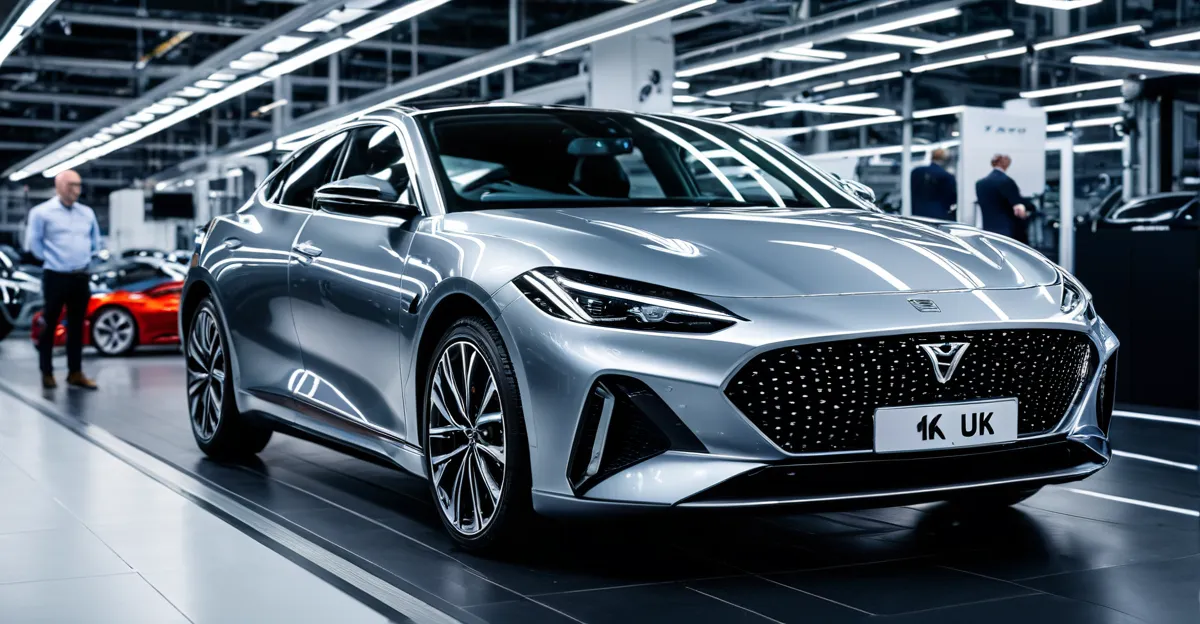Electric Vehicles: Driving the UK’s Automotive Transformation
The surge in electric vehicle adoption across the UK marks a pivotal shift in the automotive landscape. Increasing consumer demand for cleaner, more efficient options has accelerated EV adoption rates, reshaping market dynamics and encouraging manufacturers to expand their electric portfolios. This growth is fueled by advancements in battery technology, which have significantly improved energy density, charging speeds, and overall battery lifespan—key factors that enhance driving range and convenience for UK consumers.
UK car makers play a crucial role in this transition. Many are investing heavily in research and development to design competitive electric models tailored for both domestic and international markets. Their commitment goes beyond vehicles to include developing robust charging infrastructure, a critical enabler for wider EV use. Enhanced infrastructure reduces range anxiety, making electric vehicles more accessible and practical.
Topic to read : What strategies are UK automotive companies using to expand globally?
Moreover, cutting-edge battery innovations such as solid-state batteries and improved lithium-ion chemistries are poised to reduce costs and environmental impact. UK manufacturers collaborating with technology firms are spearheading progress, highlighting the nation’s strategic importance in the global electric vehicles UK ecosystem. This synergy accelerates the journey toward a sustainable, electrified future in automotive transport.
Autonomous and Connected Vehicles Advancements
Autonomous vehicles UK are rapidly progressing, with several pilot projects and trials underway across urban and rural environments. These advanced systems rely heavily on automotive AI, which processes vast amounts of data to enable safe and accurate driving decisions. The combination of sensors, cameras, and machine learning algorithms allows autonomous vehicles to navigate complex traffic, adapt to changing road conditions, and interact seamlessly with other road users.
Have you seen this : Are Electric Cars Reshaping the Future of UK Public Transportation?
Connected cars form a vital part of this evolution, integrating real-time data to enhance safety, efficiency, and user convenience. Through vehicle-to-everything (V2X) communication, connected cars in the UK can exchange information with infrastructure and other vehicles, reducing accidents and improving traffic flow. This technology supports functions such as predictive maintenance, remote diagnostics, and over-the-air updates, making vehicles smarter and more responsive.
UK tech firms and automakers collaborate closely to develop and deploy these innovations. Partnerships pool expertise in AI, telecommunications, and automotive engineering to accelerate the introduction of autonomous and connected vehicles. These efforts solidify the UK’s position as a leader in smart vehicle technology, driving forward both innovation and practical adoption in the evolving automotive landscape.
Sustainable Practices and Green Manufacturing
Sustainability auto industry efforts in the UK focus on reducing environmental impact throughout vehicle life cycles. Leading UK automakers integrate green manufacturing UK principles by adopting renewable energy sources and minimizing waste during production. These practices help decrease carbon footprints and conserve natural resources, aligning with wider climate goals.
A significant shift is occurring toward eco-friendly vehicles, where manufacturers use recycled and bio-based materials, alongside designing vehicles for easier end-of-life recycling. This reduces dependency on finite resources and supports circular economy strategies within the automotive sector. For example, interior components are increasingly made from sustainable textiles instead of traditional plastics.
Government incentives play a crucial role in promoting greener manufacturing processes. Grants and tax breaks encourage investments in low-emission technologies and sustainable supply chains. They help UK car makers transition to cleaner production methods while remaining competitive globally.
In summary, sustainability auto industry initiatives prioritize eco-conscious manufacturing and product design. By collaborating with policymakers and suppliers, UK automakers are advancing green manufacturing UK standards and producing eco-friendly vehicles that appeal to environmentally aware consumers. This approach strengthens the UK’s position as a forward-thinking leader in the evolving automotive market.
Innovative Manufacturing Technologies
The UK’s automotive manufacturing innovation centers on integrating robotics in UK auto production lines, enhancing precision and efficiency. Robotics automate repetitive tasks, reduce human error, and speed up assembly processes, thereby increasing output while maintaining quality. This transformation aligns with Industry 4.0 principles, where digital factories use connected systems to monitor and optimize operations in real time.
Digital twins are a key tool within these modern facilities. By creating virtual replicas of physical assets, manufacturers can simulate production scenarios, identify bottlenecks, and test improvements without disrupting actual operations. This proactive approach saves time and resources, ensuring leaner manufacturing cycles.
Additionally, 3D printing is reshaping the supply chain by enabling rapid prototyping and custom component fabrication directly on-site. Advanced materials combined with additive manufacturing reduce waste and allow for lighter, stronger parts tailored to vehicle specifications.
Together, these innovations empower automotive manufacturing innovation in the UK, fostering smarter, more agile production. UK car makers adopting these technologies are better positioned to meet the evolving demands of electric and autonomous vehicles, as well as sustainability goals, reinforcing their competitive edge globally.
Government Policies and Regulatory Influence
Government policies significantly shape the UK auto industry policy, especially concerning regulations EVs UK. The UK government enforces strict emissions standards and zero-emission vehicle mandates that drive manufacturers to prioritize electric vehicles. These regulations compel UK car makers to accelerate their transition toward electrification, aligning production goals with national climate targets.
Beyond mandates, government support auto innovation through diverse funding avenues. Grants and partnership programmes offer vital financial incentives for research and development in battery technology, charging infrastructure, and electric vehicles UK design. This support ensures that manufacturers and tech firms can collaboratively push forward new technologies without bearing prohibitive costs alone.
The impact of these policies extends to infrastructure development as well. Funding for expanding nationwide charging points complements industry efforts, directly addressing one of the biggest barriers to EV adoption: accessible and convenient charging networks. Such coordinated action between industry and government enhances consumer confidence and adoption rates.
In summary, UK government policies act as catalyzers, fostering innovation and growth in the electric vehicle sector. By combining regulatory pressure with strategic funding, these policies ensure the UK remains competitive within the global auto industry transformation.







